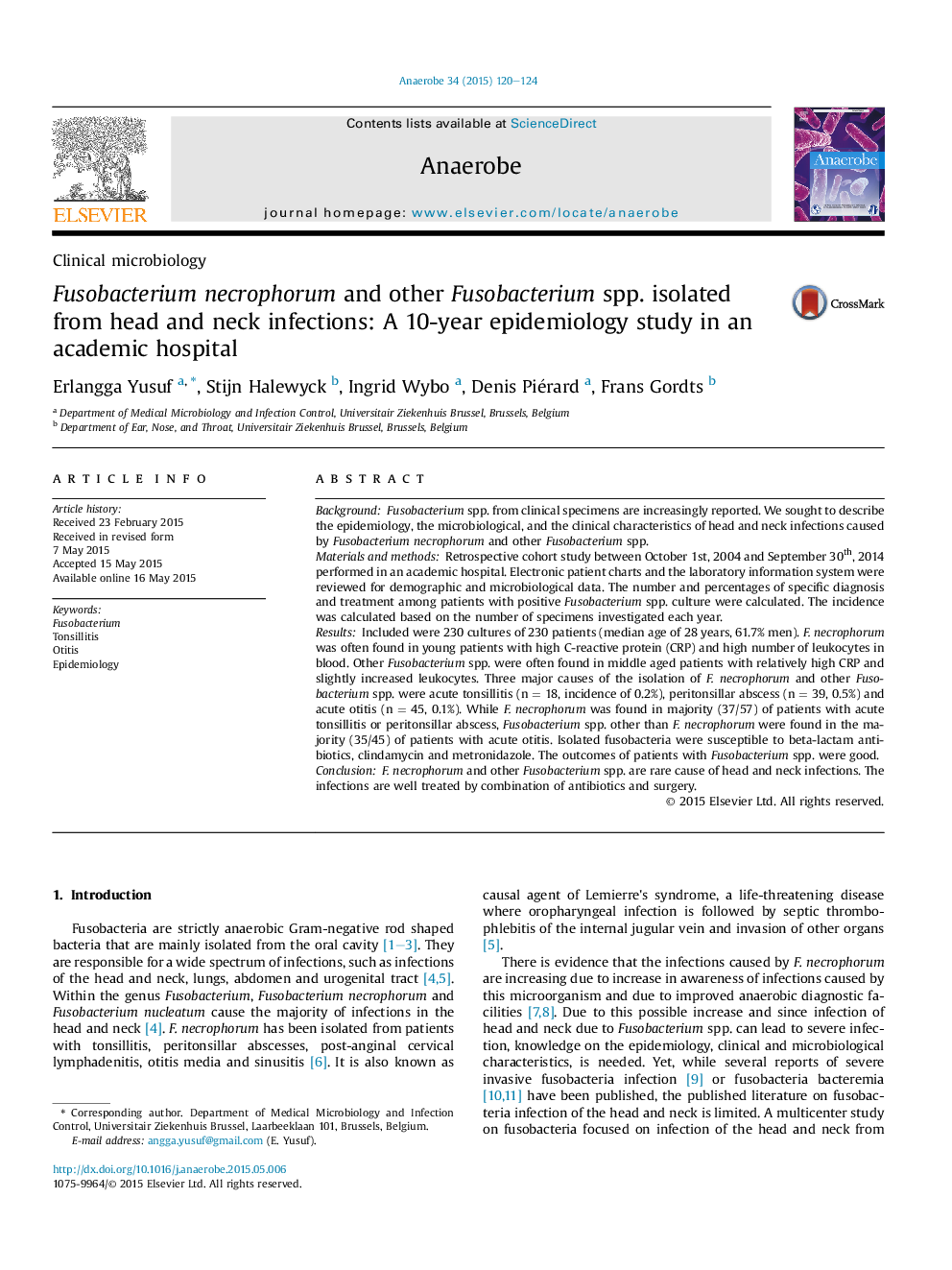| Article ID | Journal | Published Year | Pages | File Type |
|---|---|---|---|---|
| 3394941 | Anaerobe | 2015 | 5 Pages |
•Fusobacteria spp. were isolated from head and neck region in a 10-year period.•They caused mainly acute tonsillitis/peritonsillar abscess and acute otitis.•Almost all fusobacteria were susceptible to beta-lactam antibiotics and metronidazole.•Acute tonsillitis/peritonsillar abscess were treated with antibiotics and surgery.•The outcomes of patients with Fusobacterium spp. head and neck infections were good.
BackgroundFusobacterium spp. from clinical specimens are increasingly reported. We sought to describe the epidemiology, the microbiological, and the clinical characteristics of head and neck infections caused by Fusobacterium necrophorum and other Fusobacterium spp.Materials and methodsRetrospective cohort study between October 1st, 2004 and September 30th, 2014 performed in an academic hospital. Electronic patient charts and the laboratory information system were reviewed for demographic and microbiological data. The number and percentages of specific diagnosis and treatment among patients with positive Fusobacterium spp. culture were calculated. The incidence was calculated based on the number of specimens investigated each year.ResultsIncluded were 230 cultures of 230 patients (median age of 28 years, 61.7% men). F. necrophorum was often found in young patients with high C-reactive protein (CRP) and high number of leukocytes in blood. Other Fusobacterium spp. were often found in middle aged patients with relatively high CRP and slightly increased leukocytes. Three major causes of the isolation of F. necrophorum and other Fusobacterium spp. were acute tonsillitis (n = 18, incidence of 0.2%), peritonsillar abscess (n = 39, 0.5%) and acute otitis (n = 45, 0.1%). While F. necrophorum was found in majority (37/57) of patients with acute tonsillitis or peritonsillar abscess, Fusobacterium spp. other than F. necrophorum were found in the majority (35/45) of patients with acute otitis. Isolated fusobacteria were susceptible to beta-lactam antibiotics, clindamycin and metronidazole. The outcomes of patients with Fusobacterium spp. were good.ConclusionF. necrophorum and other Fusobacterium spp. are rare cause of head and neck infections. The infections are well treated by combination of antibiotics and surgery.
